Ambassador Connections: Meet Sara E. Gonzales — Texas
Ambassador Connections is a series highlighting NewsLitNation® Ambassadors.
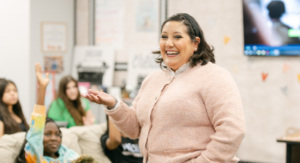
Yearbook and newspaper advisor Sara Gonzales’ leads her class of Journalism I and II students through a Checkology lesson at Paetow High School in Katy on Monday, Dec. 11, 2023. Photo credit: Laura Sponaugle for NLP.
1. As a NewsLitNation ambassador, you clearly are committed to news and media literacy education. What drives that commitment?
I remember the morning after Election Day in 2016 and hearing my students question why fake news and misinformation were such a large part of the election. They sought to have a deeper understanding of how to think critically, to fact check and help others with educated decisions in all facets of their lives. After that day, I made it a small mission of mine to help my students become critical thinkers and to normalize the standard of being news-literate. Every single day in my journalism classes we go over news from the previous 24-hour cycle and cross-verify stories from multiple outlets. If my students learn only one thing out of my journalism classes, I want them to learn how to truly understand the news and media today and how they impact their lives.
2. Please name a favorite tool or tip for teaching news literacy and how students responded to it.
Checkology® is a great tool to bring into the classroom. Recently, we did a Checkology lesson that allowed for the best classroom discussion as we went along. I love the aspect that it can be self-paced or taught as a full class (one-to-many) with the teacher leading instruction. The best part of the Checkology lessons is seeing that students question whether something is one way or another as they are going through the course. It is eye-opening and makes the learning fun.
As a class, we went through the “Citizen Watchdogs” lesson. A large number of my students had not heard of the Rodney King case, and it made them pause and look at the importance of that event and the unrest that followed in Los Angeles. Through the lesson, students were able to look at how one recorded event caused a national uproar. With this, my students were able to relate information to current news events and find ways to source their information even with people being everyday watchdogs.
3. These are particularly challenging times for being an educator. What has been your go-to de-stressor?
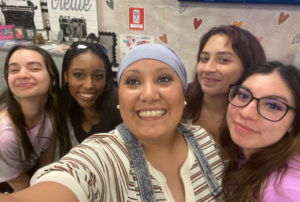
Isabella Semiglasov, Curtezha Woods, ambassador Sara Gonzales, Gabriella Leighton, Yvette Garcia, class of 2023.
I think everything is about balance and learning to know your boundaries. As a new teacher decades ago, there were nights I would be at school until almost 10 p.m., but now I have learned that the work will be there tomorrow. Sometimes that makes my to-do list really long, but I love Post-it® notes to-do lists. You can only put so much on a Post-it, and it is easily attainable. Also, I love to sit and read. Nothing can de-stress you more than getting lost in a book and letting go for a few hours as the pages flow by.
4. NLP’s PitchIt! student contest has recently opened in Texas. How do you think it will help educators with lessons related to news and media literacy in their classrooms?
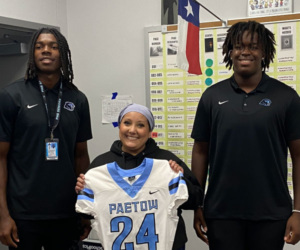
Jabari Bush (left) and Joseph Ugwu (right) Present Sara Gonzales a uniform after being named Teacher of the Week by the football team. Football players vote and select teachers who have made a difference in their high school careers both in their classroom and as support systems.
Several years ago, Texas passed legislation that requires K-12 news literacy for all school-age children. I think there has been concern of how to best teach news and media in the classroom that is objective and teaches our students to analyze resources. With the News Literacy Project, teachers have free resources with a click of a button. The information is unbiased and gives a holistic perspective of how to properly analyze the news.
This year, through NLP and the Ambassador Program, I have been able to get PitchIt! Texas off the ground and started. PitchIt! is a campaign perfect for teachers of any content to have their students write about news literacy, their thoughts and perspectives. We hope to get students to compete in Texas in such a pivotal election year where their voice matters.
5. Aside from fighting for facts, what else are you passionate about?
I am a fierce advocate of diversity in scholastic journalism. I firmly believe that journalism speakers and boards across the country need to be reflective of the voices of our students and mirror the diversity we see in our classrooms daily. In 2019, at the World Journalism Education Congress I was the only high school teacher attending to speak on diversity in scholastic journalism and how to increase the narrative to our reporting. While working with fellow journalists and journalism educators, we came up with five main points to focus on in our classrooms.
- Journalism educators and journalists must recognize the role news media haveplayed in marginalizing and sometimes traumatizing communities along the fault lines of race, class, gender, disability, generation and geography with missing voices, tokenism and negative stereotypes.
- A “call to action” to journalism educators and journalists to build diversity, inclusion and equity into all aspects of the curriculum, and a call to newsrooms to foster community accountability and power sharing based on diversity, inclusion and equity in all aspects of their operations.
- We need to recognize that diversity is an ongoing issue that is interconnected with economics, politics, entertainment and the environment.
- We must all recognize the impact the intersectionality of identities has on our journalism practices and teaching. This can be achieved through required and ongoing antibias (especially unconscious bias) education and multicultural competency training for educators, students and journalists.
- We must encourage and actively support students from marginalized groups to become journalists and recognize communicators from representative groups and local communities as professional communicators.
 6. Are you on team dog, team cat, team wombat?
6. Are you on team dog, team cat, team wombat?
Team dog all the way. I have three dogs: Maebel Lou, Dolly Estelle and Mason. Two are rescues. I can’t imagine my life without my dogs; they are the best and always provide a laugh at the end of a really stressful day. Feel free to ask me about my dogs. I have a story a day about them. There’s never a dull day at my house with them.
Ambassador Connections: Jason Hensley, Southern California
 1. As a NewsLitNation ambassador, you clearly are committed to news and media literacy education. What drives that commitment?
1. As a NewsLitNation ambassador, you clearly are committed to news and media literacy education. What drives that commitment?
Outside of the high school classroom, I work as an adjunct at a few local universities. One of those universities asked me to teach a course about the current civil rights movement. They wanted me to discuss the concept of “wokeness,” the development of the Black Lives Matter movement and the impact of George Floyd’s death.
In putting together the course material, I was amazed by the way that social media platforms were used to promote ideas that were completely false, and easily disprovable. When George Floyd was murdered, various memes and posts were spread about some of his past arrests, one of which included a photo of a woman. It was said that this woman was pregnant, and that Floyd had assaulted her. While it is true that Floyd was imprisoned for an assault, it was not an assault of a pregnant woman. Further, the picture that was used was a photo that had been taken of an American tourist who had been assaulted in Spain and had nothing at all to do with Floyd. For me, stumbling across this post and researching it further really brought out the need to do more work with news literacy.
Our decisions as a society are only as good as the information we have, and if we are consistently making decisions with incorrect information that we believe to be correct, we’re in trouble. Therefore, I believe it is imperative to share news literacy tools with others so that we can learn to discard this misinformation and actually hold on to the information that is true. Without that ability to discern, we can become jaded and simply choose not to listen to any information, which is not only a travesty, but dangerous.
2. Name a favorite tool or tip for teaching news literacy that you can share with our educator community, and your students’ reactions.
One of the best things that I’ve learned through being involved with NLP is how to do a reverse image search. I previously had no idea that something like this was possible, but it is so helpful because it often allows one to see that misleading images were posted before the incident that they supposedly depict (like the aforementioned photo that was said to be of the woman that Floyd had assaulted). I haven’t yet shared this tool with my students, but I plan to do so shortly.
The tool that I’ve most recently shared with my students that I’ve found really helpful has been Reuters Fact Check. When I shared it with the students, they were blown away by how many misleading posts are made each day. Rather than focusing on the specifics of each post on Reuters, looking at the number of posts per day really helped my students see the extent of the problem of misinformation and disinformation.
3. These are particularly challenging times for being an educator. What has been your go-to de-stressor?
I find a lot of strength in connecting with people. I think that we as humans were made to create connections, to relate to each other and to empathize with one another. Therefore, despite the fact that this time is challenging, I de-stress by reaching out to others, trying to connect with them and attempting to see how they are coping with everything. I’ve also been trying to give more classes related to things like news literacy, simply because I think that when society can get ahold of better information, society will improve. In this way, I feel as though I’m contributing to slowly helping society become healthier and happier.
4. How does your work as a news literacy ambassador contribute to your local community?
I already mentioned the course that I gave about the current civil rights movement. Without news literacy, that course would have had very little impact. News literacy undergirded it and made it meaningful. It allowed the students to see past some of the false narratives they had heard previously and start thinking more deeply about information and the way that it impacts their view of the world. Further, in using Checkology® and RumorGuardTM in my classroom, I have found that my students are really beginning to grasp the way that information can be manipulated and used to shape public opinion. They are developing the ability to sift through material and to figure out quality sources.
One of my major goals this year as a news literacy ambassador is to connect with the superintendents of the local districts and start holding regular professional development with the public schools in this area. In the next week or so, I intend to reach out to the local paper and introduce myself and my work as an ambassador, and then with that introduction, reach out to the superintendents.
 5. Aside from fighting for facts, what else are you passionate about?
5. Aside from fighting for facts, what else are you passionate about?
This is connected to my fight for facts but is also slightly different. I’m really passionate about people. People matter. Building on that, people working together matters. One of my major goals in life is to bring people together, to acknowledge that we are all part of a shared community, to appreciate each other, to learn from each other and to also struggle with each other. We all have different ideas. Even if we all get to the facts, it can still be difficult to bring together disparate personalities, religions and ideologies. But I think it’s crucial. Thus, I fight for facts, but I also fight for appreciation –– appreciation of differences and appreciation of each other, despite our differences.
As part of that love for people, I decided to get my Ph.D. in Holocaust and genocide studies. I wanted to better understand what develops hatred between groups (particularly religious groups) and why some choose to stand against genocide. In the process of studying the Holocaust, I stumbled across stories of rescue via the Kindertransport that had not yet been told; these eventually led to writing the award-winning book Part of the Family and producing a documentary of the same name.
 6. Are you on team dog, team cat, team wombat?
6. Are you on team dog, team cat, team wombat?
So, I don’t have a dog or a cat. If I had to choose one, I’d choose a dog, just because dogs are so happy; I love that about them. However, I’m actually part of team bunny. I always thought that having a bunny was silly, and when I met someone who had one as a pet, I didn’t believe it –– I couldn’t understand why someone would have something as a pet that couldn’t really do anything helpful (i.e., it can’t act as a guard dog and isn’t really a companion in the same way that a dog or a cat could be). But, after I had four daughters, I found bunnies becoming an important part of my life. Now, I absolutely love being part of team bunny. There’s nothing that quite makes a day better than petting something so fuzzy.
Jason was recently featured in a story in Acorn Newspapers in California: “Students learn to discern fake news.”
NLP’s newest ambassadors bring diverse backgrounds, expertise to their work
NLP’s News Literacy Ambassador Program kicks off the school year with its greatest reach and impact yet since its launch in early 2021. With 10 new educators on board, we now have 19 ambassadors advocating for news literacy education from New York to California, Michigan to New Mexico and several states in between.
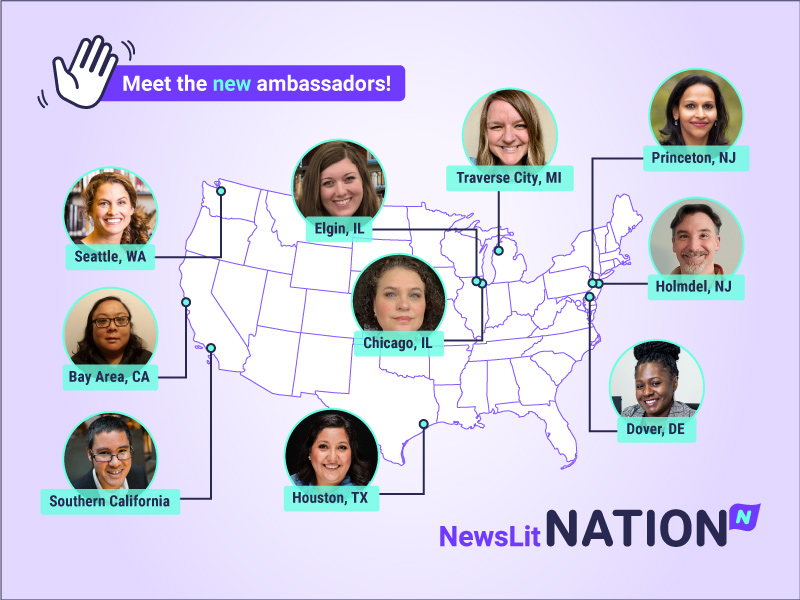
The new group of ambassadors includes award-winning journalists, authors and podcasters, and sought-after speakers and experts in their fields.
“We are so pleased to grow this program, as the ambassadors are at the heart of our NewsLitNation educator community,” said Miriam Romais, NLP’s director of NewsLitNation. “They are active educators themselves, so they understand the needs of their fellow teachers and librarians and make themselves available to work with their local schools, districts and boards of education to help address specific news and media literacy needs within their regions.”
Ambassadors work to advance news literacy in their communities and act as thought leadership partners to support the needs of educators in their districts. In these grassroots roles, they give presentations, organize learning events, hold student competitions and much more.
Each educator brings to their role ample classroom and library experience — as well as a commitment to better informed, engaged and empowered students. Meet our newest members, below, and read about all our ambassadors on the program web page.
California (Bay Area)
Merl Corpuz
Education specialist
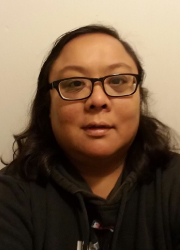 Merl Corpuz is an education specialist working in the San Francisco Bay area. She has worked in this capacity for the past 15 years. As an education specialist, she teaches core academic classes as well as world language to students with individualized education programs at various schools in the West Contra Costa Unified School District. It is her responsibility to differentiate learning material to the unique needs of each student on her caseload. In addition to core academics, she teaches financial literacy and is a Next Generation Personal Finance Distinguished Educator. Additionally, she has had the privilege of being an iCivics Teacher Facilitator fellow for Northern California this past year.
Merl Corpuz is an education specialist working in the San Francisco Bay area. She has worked in this capacity for the past 15 years. As an education specialist, she teaches core academic classes as well as world language to students with individualized education programs at various schools in the West Contra Costa Unified School District. It is her responsibility to differentiate learning material to the unique needs of each student on her caseload. In addition to core academics, she teaches financial literacy and is a Next Generation Personal Finance Distinguished Educator. Additionally, she has had the privilege of being an iCivics Teacher Facilitator fellow for Northern California this past year.
She earned her bachelor’s degree in political science with a minor in Middle Eastern studies from the University of California, Berkeley. Merl also holds moderate/severe and mild/moderate teaching credentials from the University of Massachusetts Global (formerly Brandman University). When not teaching, Merl enjoys reading, traveling and spending time with family.
California (Southern California)
Jason Hensley
Principal
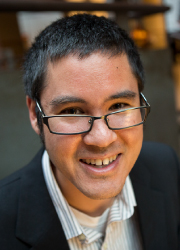 Jason Hensley, Ph.D., teaches language, history, public speaking and news literacy at the Heritage School, a private school in Los Angeles. He is a fellow of the Michael LaPrade Holocaust Education Institute of the Anti-Defamation League, a member of Civic Spirit’s teacher education cohort and the award-winning author of 12 books, including Part of the Family. His work has been featured in HuffPost as well as the BBC, and he has served as the historical advisor for a Holocaust documentary.
Jason Hensley, Ph.D., teaches language, history, public speaking and news literacy at the Heritage School, a private school in Los Angeles. He is a fellow of the Michael LaPrade Holocaust Education Institute of the Anti-Defamation League, a member of Civic Spirit’s teacher education cohort and the award-winning author of 12 books, including Part of the Family. His work has been featured in HuffPost as well as the BBC, and he has served as the historical advisor for a Holocaust documentary.
Delaware (Dover)
Renatae Burton
Social studies educator
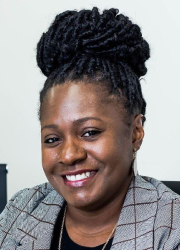 Renatae Burton is a middle school social studies educator at Campus Community School in Dover, Delaware, and an instructor at the Delaware Center for Distance Adult Learning. With a career spanning 12 years, Renatae initially shared the beauty of literature and language as a high school English teacher, leaving an indelible mark on countless students. Now, she has embarked on a new journey, bringing her expertise to middle school social studies.
Renatae Burton is a middle school social studies educator at Campus Community School in Dover, Delaware, and an instructor at the Delaware Center for Distance Adult Learning. With a career spanning 12 years, Renatae initially shared the beauty of literature and language as a high school English teacher, leaving an indelible mark on countless students. Now, she has embarked on a new journey, bringing her expertise to middle school social studies.
She has served as a board member for the Delaware State Education Association and on the National Education Association, where she was the Mid-Atlantic representative on the Standards and Practices Committee for two terms. Renatae received her bachelor’s degree in elementary education from Delaware State University and her master’s degree in nonprofit organizational leadership from Wilmington University.
Illinois (Elgin)
Jessica Wetendorf
Library media specialist
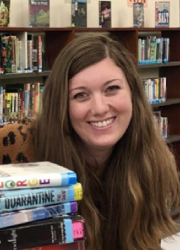 Jessica Wetendorf works for school district U-46, the second-largest school district in Illinois. She’s currently building library programs for the district’s alternative secondary schools. Her involvement in program development has led to her role as the media specialist representative for her district’s committee on middle school transition, which affects thousands of students.
Jessica Wetendorf works for school district U-46, the second-largest school district in Illinois. She’s currently building library programs for the district’s alternative secondary schools. Her involvement in program development has led to her role as the media specialist representative for her district’s committee on middle school transition, which affects thousands of students.
Jessica’s diverse educational background includes earning a bachelor of fine arts degree in 2005 from the world-renowned School of the Art Institute of Chicago, where she was honored by being the recipient of the Merit Grant. After graduation, she moved to California to work for a privately owned digital archivist company that supported artists’ work from across the country. While working as a digital archivist, Jessica earned a master’s degree in library and information science from San Jose State University in 2013. Since moving back to Illinois, she has earned a professional educator’s license from Dominican University and has worked as a library media specialist at several Illinois public schools.
Illinois (Chicago)
Alba Mendiola
Bilingual broadcast and journalism teacher
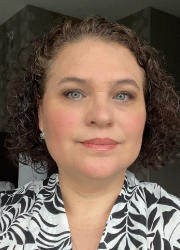 Alba Mendiola, a dedicated educator and experienced journalist, teaches Spanish-language arts and broadcast journalism to Spanish heritage speaker students at Cristo Rey Jesuit High School in Chicago. Before transitioning to the classroom, Alba had an 18-year successful career as a Spanish television reporter at Telemundo Chicago and Televisión Azteca in Veracruz, Mexico. Her investigative work earned her the prestigious Chicago Regional Emmy Award seven times, showcasing her dedication and talent in journalism. In 2021, Alba received an American Association of University Women grant, further acknowledging her commitment to professional development and growth. Her passion for education also led to her being named the Alan C. Miller Educator of the Year in 2023 by the News Literacy Project.
Alba Mendiola, a dedicated educator and experienced journalist, teaches Spanish-language arts and broadcast journalism to Spanish heritage speaker students at Cristo Rey Jesuit High School in Chicago. Before transitioning to the classroom, Alba had an 18-year successful career as a Spanish television reporter at Telemundo Chicago and Televisión Azteca in Veracruz, Mexico. Her investigative work earned her the prestigious Chicago Regional Emmy Award seven times, showcasing her dedication and talent in journalism. In 2021, Alba received an American Association of University Women grant, further acknowledging her commitment to professional development and growth. Her passion for education also led to her being named the Alan C. Miller Educator of the Year in 2023 by the News Literacy Project.
Born and raised in Mexico, Alba takes pride in her immigrant background. She holds a bachelor of science degree in communications from the prestigious institution Tec de Monterrey. More recently, she graduated from the University of Illinois at Chicago with a master’s degree in teaching, earning her professional educator’s license.
Beyond her roles as an educator and journalist, Alba actively engages with various organizations and institutions. She has served as a speaker, panelist and moderator at conferences organized by nonprofit organizations, universities and schools in both the United States and Mexico.
Michigan (Traverse City)
Danelle Brostrom
Educational technology coach
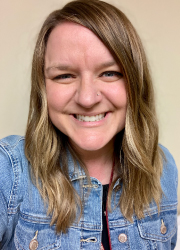 Danelle Brostrom is a K-12 educational technology coach for Traverse City Area Public Schools in Traverse City, Michigan. She also has worked as an elementary teacher, reading specialist and principal intern. Danelle was named by the International Society for Technology in Education as one of “20 to Watch in 2023” and is currently serving on the board of directors for the Michigan Association for Computer Users in Learning. She is the co-creator of the WIREDTC EdTech Conference and co-host of the Traverse City Area Public Schools’ Loop Weekly Podcast.
Danelle Brostrom is a K-12 educational technology coach for Traverse City Area Public Schools in Traverse City, Michigan. She also has worked as an elementary teacher, reading specialist and principal intern. Danelle was named by the International Society for Technology in Education as one of “20 to Watch in 2023” and is currently serving on the board of directors for the Michigan Association for Computer Users in Learning. She is the co-creator of the WIREDTC EdTech Conference and co-host of the Traverse City Area Public Schools’ Loop Weekly Podcast.
Denelle is a certified Google trainer and a known expert in digital wellness, technology ethics and student privacy. She has extensive experience designing and leading engaging learning opportunities for staff, students and parents and is well-versed in technology trends and applies a forward-thinking mindset so schools can best support all students.
New Jersey (Holmdel)
Steve Tetreault
Librarian
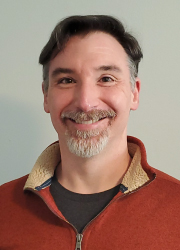 Steve Tetreault has been a teacher since 1998 and is currently a librarian at William R. Satz Middle School in Holmdel, New Jersey. After more than 20 years as an English language arts teacher for grades 7-12, Steve created and taught a required information literacy class for his seventh graders and made the transition into the library. He is a monthly contributor to the American Association of School Librarians’ Knowledge Quest site and was the host of the second season of School Library Connection’s One Lesson at a Time podcast.
Steve Tetreault has been a teacher since 1998 and is currently a librarian at William R. Satz Middle School in Holmdel, New Jersey. After more than 20 years as an English language arts teacher for grades 7-12, Steve created and taught a required information literacy class for his seventh graders and made the transition into the library. He is a monthly contributor to the American Association of School Librarians’ Knowledge Quest site and was the host of the second season of School Library Connection’s One Lesson at a Time podcast.
Steve has written for School Library Connection, Knowledge Quest, Publisher’s Weekly, American Libraries and other publications. He created SchoolLibrarianLearningNetwork.org, a site that collects free learning opportunities and resources of interest to school librarians. Steve is the chair of the New Jersey Association of School Librarians’ Professional Development Committee, as well as an amateur guitarist whose passion outpaces his skills. He has a master of education degree (2006) and a doctor of education degree (2014) in educational administration and supervision, as well as a master’s degree in library and information science (2019).
New Jersey (Princeton)
Aish Saminathan
Math, science and critical media literacy teacher
 Aish is a former journalist turned Montessori teacher at Princeton Montessori School in New Jersey. She teaches math and science for upper elementary students and critical media literacy for middle school students. Aish holds an undergraduate degree in physics, a master’s in English literature and a post-graduate diploma in journalism from the prestigious Asian College of Journalism in India. She also holds a Montessori diploma for Elementary I and II. Prior to her teaching career, she spent six years as a senior journalist with The Hindu, a leading English-language daily in India. Her journalistic journey, marked by over 300 published articles ranging from news reports to book reviews and feature stories, focused on rural education and the realms of arts and culture.
Aish is a former journalist turned Montessori teacher at Princeton Montessori School in New Jersey. She teaches math and science for upper elementary students and critical media literacy for middle school students. Aish holds an undergraduate degree in physics, a master’s in English literature and a post-graduate diploma in journalism from the prestigious Asian College of Journalism in India. She also holds a Montessori diploma for Elementary I and II. Prior to her teaching career, she spent six years as a senior journalist with The Hindu, a leading English-language daily in India. Her journalistic journey, marked by over 300 published articles ranging from news reports to book reviews and feature stories, focused on rural education and the realms of arts and culture.
This year, she was selected as one of 40 people in the United States to participate at the U40 Summit hosted by the American Montessori Society, where she collaborated on innovative approaches to shape the future of Montessori education. Aish is a regular contributor of education articles to AMS’s Montessori Life and its blog.
As a first-generation immigrant and a mother of two daughters, Aish is passionately dedicated to educating adolescents about information and misinformation in the digital age. She is committed to empowering her students to become change agents in society, arming them with the skills to navigate a complex world with discernment and wisdom.
Texas (Houston)
Sara E. Gonzales
Journalism teacher and advisor
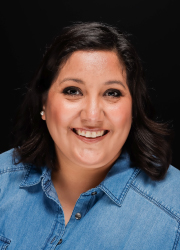 Sara E. Gonzales is a journalism advisor and teacher for Patricia E. Paetow High School in Katy, Texas. Her school’s publications have received national recognition and won the Columbia Scholastic Press Association’s Crown award and Interscholastic League Press Conference’s Star award. She has been recognized as a Journalism Education Association Diversity Award nominee and as an American Society of News Editors emerging leader. Sara has recently been named a 2023 UNT Scripps Howard Fund teaching ambassador. Sara received her bachelor’s degree in mass communication from Texas State University-San Marcos. She had an area of emphasis in electronic media and a minor in photography. Prior to graduating from college, Sara was a photographer for former President Bill Clinton and the Clinton Foundation in Little Rock, Arkansas.
Sara E. Gonzales is a journalism advisor and teacher for Patricia E. Paetow High School in Katy, Texas. Her school’s publications have received national recognition and won the Columbia Scholastic Press Association’s Crown award and Interscholastic League Press Conference’s Star award. She has been recognized as a Journalism Education Association Diversity Award nominee and as an American Society of News Editors emerging leader. Sara has recently been named a 2023 UNT Scripps Howard Fund teaching ambassador. Sara received her bachelor’s degree in mass communication from Texas State University-San Marcos. She had an area of emphasis in electronic media and a minor in photography. Prior to graduating from college, Sara was a photographer for former President Bill Clinton and the Clinton Foundation in Little Rock, Arkansas.
Currently, she serves as the Houston leader for the Online News Association and was the only teacher out of the country accepted into the American Society of News Editors Emerging Leaders Institute. Sara was also the only high school journalism advisor in the world to present at the World Journalism Education Congress in Paris, France, on diversity in scholastic journalism.
Washington (Seattle)
TuesD Chambers
Teacher librarian
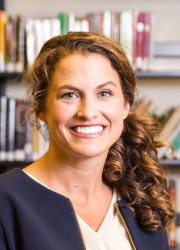 TuesD Chambers serves as a teacher librarian at Ballard High School in Seattle Public Schools. She has been an educator for over 24 years and earned her master’s in education in professional development and leadership with a media library endorsement. TuesD teaches digital leadership, literacy and 21st-century skills to students and was chosen as the Washington State Teacher Librarian of the Year for 2019.
TuesD Chambers serves as a teacher librarian at Ballard High School in Seattle Public Schools. She has been an educator for over 24 years and earned her master’s in education in professional development and leadership with a media library endorsement. TuesD teaches digital leadership, literacy and 21st-century skills to students and was chosen as the Washington State Teacher Librarian of the Year for 2019.
She has presented at the International Society for Technology in Education, South by Southwest EDU, and Oculus Connect 6 about the intentional use of technology to impact the learning and culture of a school. TuesD is a firm believer in the power of collaboration and works with teachers and librarians to create student-centered classrooms in her role as a content library specialist and adjunct professor for Antioch University. She loves to connect with other passionate educational leaders and welcomes the outreach.
Ambassador Connections: Meet Juan Alvarado
Learn what motivates Texas ambassador Juan Alvarado to embed news literacy in his teaching. Ambassador Connections is a series highlighting NewsLitNation Ambassadors.
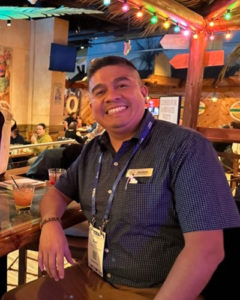 1. As a NewsLitNation ambassador, you clearly are committed to news literacy education. What drives that commitment?
1. As a NewsLitNation ambassador, you clearly are committed to news literacy education. What drives that commitment?
The one event that triggered or motivated me to find a better way to teach news literacy occurred during the late months of 2020. As a high school teacher, it was common to hear my students talk to one another regarding common topics like the presidential election and other social media trends. However, they only discussed vague ideas and very often they misstated facts and quoted sources that were very questionable. It was at this point that I committed myself to educate my students, so that they could become better digital citizens. Thankfully, I discovered Newslit.org as the source to help me teach news literacy.
2. What is your favorite tool or tip for teaching news literacy that you can share with the community?
The best tip I can give other educators and our community is to never draw conclusions based on hearsay. With the waning number of credible news outlets, it is much more imperative to fact-check or compare a story by using a variety of sources. However, I strongly believe that a healthy level of skepticism is needed to keep our media and press in check, while at the same time allowing them to do their job. No single news outlet should be trusted blindly. Nonetheless, many news outlets do a good job of reporting candidly and without bias, making them credible sources.
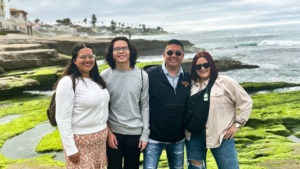 3. These are particularly challenging times for being an educator. What has been your go-to de-stressor?
3. These are particularly challenging times for being an educator. What has been your go-to de-stressor?
For almost two years, our students were forced to learn in very different settings and unique ways. Most teachers have adapted to the changes, but getting back to the same teaching trends prior to the COVID pandemic has been a challenge. This was and has been especially true with my emergent bilingual students because they lost access to the one place where they could comfortably speak, read and write in the language they struggled with the most. Many of my students live across the border and connectivity was and still is a major concern. However, our school works hard to provide students with the tools they need. To help my students get the practice and to teach them more efficiently, I sought various digital learning platforms and programs, and among them was News Literacy. When I connected with them, I made sure to call on every student to engage with me, even if it was for just a brief moment. Since participation and engagement are the norms in my class, students know that they need to be ready to participate. Distance learning reaffirmed what I strongly believed: empathy and student accountability can be practiced at the same time if a good balance exists between them.
The one go-to de-stressor I have discovered is the ability to enjoy nature and spend as much time doing chores or tasks that involved being outdoors. I neither consider myself an avid hiker nor a gardener, but I do enjoy spending time walking along nature trails as well as tending to my garden.
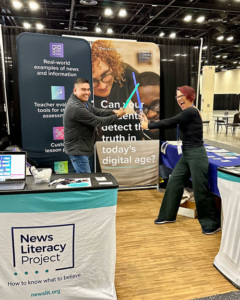 4. How does being a News Literacy ambassador help your community?
4. How does being a News Literacy ambassador help your community?
I feel that being a News Literacy ambassador has allowed me to share a very good resource that many educators and community members can use. It is not easy to live in an area that very often gets a bad reputation for being less informed or misinformed, but that is why being an ambassador has gone a long way in gaining my community’s trust. It is my goal to get not only my school but also neighboring districts to see Newslit.org as their go-to source for news literacy.
5. What lesson, topic or activity are you most excited to bring to your classroom, and why?
I think I partially answered this question already, but the topic I feel very strongly about is how racist news coverage has left a very negative legacy. News bias has been around for a long time, but many of us are just realizing that it is an issue that has become very difficult to get rid of. I am excited to teach these units [Understanding Bias and Harm & Distrust] to my students.
NLP Note: If you would like to see these and other Checkology® lessons, please register for a free educator account, if you have not done so already.
6. Aside from fighting for facts, what else are you passionate about?
I am a passionate believer in inclusivity in my classroom. My classroom is a safe zone and my students have come to expect that. For example, my students know that they are free to discuss topics in an open and respectful way. They know that literature can sometimes spark controversial yet relevant discussions, and as long as students treat each other with respect they are welcome to participate. In fact, almost every year, during our school’s teacher appreciation week festivities, I receive at least one or two letters thanking me for being an inclusive and fair teacher.
7. Are you on team dog, team cat, team wombat?
My son and daughter’s love of animals has made me a proud owner of four mixed-breed dogs. They are a handful at times, but I enjoy taking care of them.
Ambassador Connections: Meet Deborah Domingues-Murphy, Pittsburgh, Pennsylvania
Deborah Domingues-Murphy, library media specialist
Pittsburgh, Pennsylvania
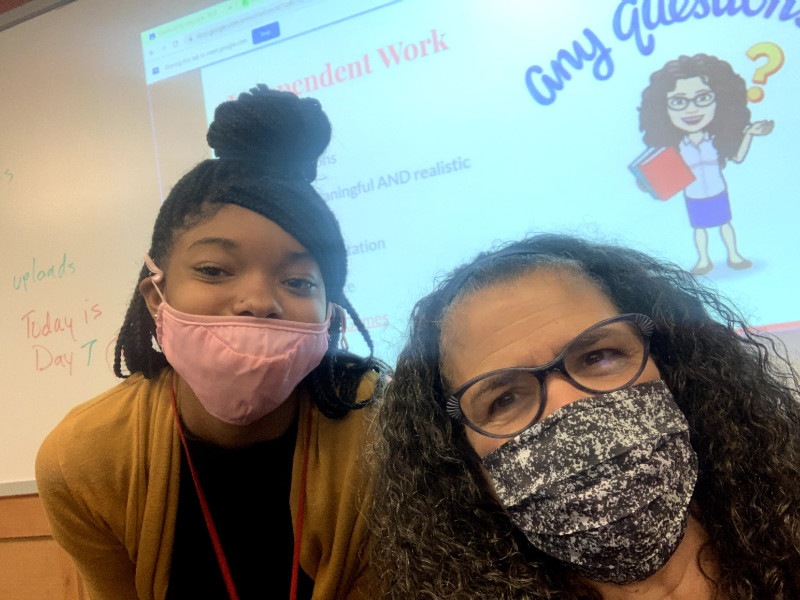
1. As a NewsLitNation ambassador, you clearly are committed to news literacy education. What drives that commitment?
My grandmother was a naturalized citizen. She taught all of us from a young age to be active in our civic duties, especially when it came to voting. She participated in every election from the time she received her citizenship well into her 100s. She read up on the candidates and the issues. She had ongoing correspondence with all the presidents dating back to Eisenhower up to the Clinton administration. I want my students to want to be involved in their community, hold our elected officials accountable. To do that, they need to know what is happening and that requires them to be smart consumers of news information.
2. What is your favorite tool or tip for teaching news literacy?
I use a lot of NLP materials. Two of my “go-tos” are the RumorGuard images and Checkology. I use the RumorGuard images to see how well my students can discern the accuracy of the image. They are learning how to apply the five factors for credibility: authenticity, source, evidence, context, reasoning. The other is Checkology, it is so adaptable. I can use lessons as part of direct instruction as well as assign a number of them to extend learning. The fact that the lessons are self-grading makes implementing it so easy.
3. These are particularly challenging times for educators. What has been your go-to de-stressor?
In my class, I try to bring in some mindfulness exercises and practices. I have set routines in my class and start each class period with 5 minutes of silence. Students have told me it is the only time in the day they don’t feel stressed out. One described it as finally breathing, not feeling like he is always holding his breath. For me personally, I also do mindfulness exercises that include guided meditation and yoga. I also do watercolors and knit.
4. Design your own student questions for an event relevant to your region.
Pennsylvania is frequently a battleground state. As a result, there is a lot of disinformation and misinformation. We are bringing the NLP PitchIt! contest to Pennsylvania. Working with the school district (Allegheny Intermediate Unit), we want to give students a platform to write an evidence-supported essay about the topics of a free press and news literacy.
 5. Aside from fighting for facts, what else are you passionate about?
5. Aside from fighting for facts, what else are you passionate about?
I never pass up on an opportunity to go to new places. I love learning about different cultures, eating local foods, seeing amazing sites.
6. Are you on team dog, team cat, team wombat?
Team dog all the way (although wombats are a close second)
In spring 2023, NLP will be looking for more ambassadors to join our movement. Interested? Contact [email protected] for more information.
Ambassador Connections: Meet Amanda Escheman
This is the first in an occasional series featuring our NewsLit Nation ambassadors.
Amanda Escheman, Denver
1. As a NewsLit Nation ambassador, you clearly are committed to news literacy education. What drives that commitment?
As an elder millennial, I had access to the internet growing up, and social media became popular during my high school years. I was a captain on our high school speech and debate team and was never afraid to bring up tough topics around the dining room table. I was appalled by the echo chamber I found myself in and appreciated the critical lens I was forming as a competitor in forensics. I engaged in critical thinking with fidelity and was inspired to pursue my bachelor’s in philosophy. It was in college that I developed literacy in critical processing, and I fell in love with education.
Now, as a social studies teacher, I am committed to helping others navigate and interrogate digital content in its many forms and break out of their own echo chambers. Often, digital consumers seem content with sharing unvetted information that reaffirms their biases, and media outlets exploit this vulnerability. The impact on the democratic process is striking; misinformation begets misinformed voters. I can see no greater threat to democracy than a misinformed electorate. This is truly an “us vs. the machine” challenge. Freedom of press grants news organizations the responsibility of guiding the public to make informed decisions. However, the digital renaissance has transformed the information machine into a tool for the attention economy. The value of profit seems to outweigh the value of an informed electorate. Within the classroom, I have the opportunity to do my part in helping students become thoughtful consumers of online content, and moreover, considerate participants in democracy. Critical literacies must evolve to address the changing landscape of news and other digital media.
2. What is your favorite tool or tip for teaching news literacy that you can share with the community?
I am a huge “X-Files” nerd and have always loved the absurdity of conspiracies and the suspension of logic in the sci-fi genre. To share my joy in the absurd, I would instruct a lesson on the Roswell Investigation. Students analyzed primary and secondary sources to form an opinion and explain their reasoning. This was always great fun.
However, in online spaces it becomes more and more difficult to separate fact from fiction. Information can be more easily manipulated, and most people lack the digital literacy skills needed to analyze and evaluate media. I have assigned various lessons through Checkology® to drill down on topics like search engines and algorithms as a way to bring awareness to the way online tools can shape and limit our experiences. The first step in teaching news literacy is to realize that we are fish in a digital data stream and must become aware of the water around us.
3. These are particularly challenging times for being an educator. What has been your go-to de stressor?
I am a history teacher, so I binge period shows like “Outlander.” I am also a collector of historical artifacts including old and rare books, the Civil War/Revolutionary War relics, antiques, and other items I can leverage to inspire my learners to engage. I recently started collecting antique, shellac 78’s and restored a gramophone from 1920. Now I am obsessed with genealogy and have fallen into the rabbit hole of ancestry research.
4. How do you promote news literacy outside of the classroom?
This spring I co-hosted a series of webinars with The Colorado Sun to discuss the foundations of news literacy, teaching controversial issues in the classroom and teaching news literacy during the midterms. Our goal was to inform other educators how to navigate news literacy in education. It is my hope to help integrate news literacy instructional methods into more professional development circles.
5. Aside from fighting for facts, what else are you passionate about?
I am passionate about student civic engagement in local politics. Across the political spectrum, students need to engage with local party leaders and feel invested in their communities. For example, in Colorado, party members under the age of 18 can caucus! Within the Democratic caucus someone who is 16 years old can even vote! This is one way that students can make a political mark and elect local, state and national leadership in a big way.
News Literacy Ambassador Program is growing
NLP’s News Literacy Ambassador Program, a national initiative to mobilize educators and amplify organizing efforts in the fight against misinformation, is an essential part of our ambitious four-year plan to build a more news-literate nation, and, in turn, a more robust, equitable democracy.
That’s why we are expanding this program with a call for applications from middle and high school educators living in Hawai’i, Illinois, Ohio, New Mexico, Southwest Texas and Utah.
We’re looking for people who can have an immediate and meaningful impact on our work, are unafraid to experiment, can work collaboratively as well as independently and believe in the importance of quality professional learning to empower educators to teach middle and high school students how to sort fact from fiction in the digital age.
To reach NLP’s goal of embedding news literacy in the American education experience, we are activating the ambassadors as a regional movement-building model to mobilize news literacy advocates for systemic change. The overall goal is for ambassadors to champion news literacy education at the local level, helping educators teach students how to think (not what to think).
Advocates for news literacy education who want to make a difference in their community can learn more and apply by July 31. These part-time positions include a small stipend. Find out more about NLP’s current news literacy ambassadors here.For questions, please email [email protected].
All educators interested in exchanging resources and receiving timely updates about news literacy may join NLP’s NewsLit Nation Facebook Group.
News Literacy Ambassador program welcomes five new members
After a successful launch in October 2020, NLP is expanding its News Literacy Ambassador Program, extending our reach and strengthening our progress toward embedding news literacy in the American education system.
“Through a rigorous process of identifying educators in key states across the country, we’re pleased to announce this incredible group of news literacy advocates who are leading the charge to ensure that students are well-informed and engaged civic participants in their communities,” said Ebonee Rice, senior vice president, educator network.
Ambassadors work at the grassroots level in their communities, organizing colleagues and allies to help push back against misinformation and advocate for news literacy. Meet our new ambassadors below and learn more about all of them in NewsLit Nation.
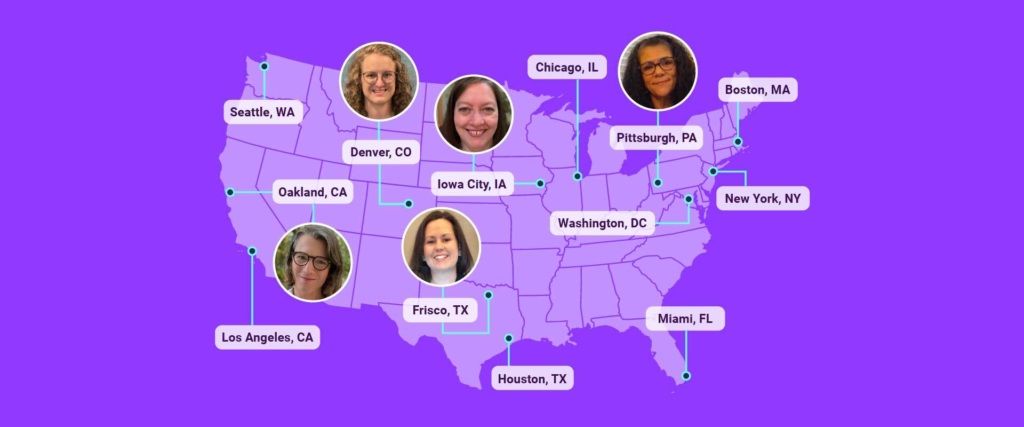
Deborah Domingues-Murphy
After her children left for college, Domingues-Murphy went back to school to earn a teaching degree, becoming certified as a business and technology teacher and a library media specialist. Originally from Southern California, she lives in Pittsburgh, Pennsylvania, and has been teaching at City Charter High School in downtown Pittsburgh for 12 years. Because her school does not have a library, she teaches a four-year information literacy curriculum, working with students from the time they enter ninth grade through graduation. She teaches them to evaluate the reliability of sources and how to responsibly use those sources and the information they provide. They also write literature reviews, apply their research to a local topic and present their findings to a panel of community members. When not teaching, Domingues-Murphy likes to travel, read and cook.
Amanda Escheman
A native of Colorado, Escheman teaches 9th grade geography at Abraham Lincoln High School in Denver. She has a bachelor’s degree in philosophy with a minor in religion from the University of Colorado at Boulder. In 2019, she received her master’s degree in education and human development from the University of Colorado at Denver and began her career as an English and social studies teacher. Her desire to become a teacher is rooted in her experiences as a speech and debate competitor in high school. Escheman believes news literacy can be a tool for transformation and social change and must be prioritized to democratize online spaces and encourage civic participation. Escheman is a member of the One Colorado LGBTQ+ network and regularly advocates for more inclusive space in public schools. She has served as an equity and diversity liaison and member of the LGBTQ+ employee workgroup and on the Community Diversity Advisory Council.
Jill Hofmockel
Hofmockel brings more than 20 years of experience in school libraries to her position as the teacher-librarian at West High School in Iowa City, Iowa. She has a bachelor’s degree in political science and a master’s degree in library and information science. A longtime member of the Iowa Association of School Librarians, Hofmockel has served as a committee chair, board member and president, as well as a liaison to the American Association of School Librarians Affiliate Assembly. She is committed to incorporating information literacy skills throughout the school’s curriculum, with a special emphasis on news literacy. Outside of the classroom, Hofmockel coaches her son’s high school esports team and enjoys sharing a cup of tea with her daughter.
Debbie Keen
Keen is a high school teacher at the Career and Technical Education Center in Frisco, Texas, specializing in courses for students interested in pursuing careers in law or public service. She has a bachelor’s degree in political science and promotes civics education in classrooms across the country. Keen has presented teacher workshops to such groups as the State Bar of Texas Law-Related Education, the American Board of Trial Advocates and The Center for American and International Law. In 2018, Keen founded the Youth Safety and Civility Alliance to promote civil discourse and conflict resolution strategies for young people. The American Lawyers Alliance selected her for a 2020 Teacher of the Year Award. In her free time, she enjoys traveling and learning alongside other creative teachers.
Molly June Roquet
Head librarian at Redwood Day, an independent K-8 school in Oakland, California, Roquet has been a middle school history teacher and a public librarian. She has a bachelor’s degree in history from San Francisco State University and a master’s degree in library and information science from Wayne State University. Roquet has presented at the American Library Association and California Library Association annual conferences and has written for the publications Computers in Libraries and Information Today. Roquet is excited about the opportunity to collaborate with others as an NLP ambassador.
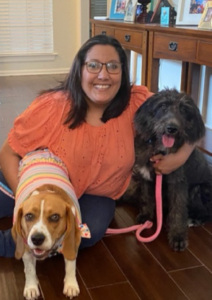 6. Are you on team dog, team cat, team wombat?
6. Are you on team dog, team cat, team wombat? 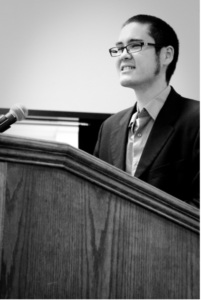 1. As a NewsLitNation ambassador, you clearly are committed to news and media literacy education. What drives that commitment?
1. As a NewsLitNation ambassador, you clearly are committed to news and media literacy education. What drives that commitment? 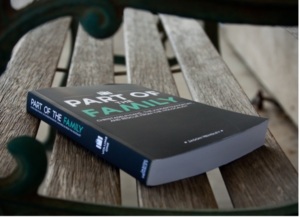 5. Aside from fighting for facts, what else are you passionate about?
5. Aside from fighting for facts, what else are you passionate about? 6. Are you on team dog, team cat, team wombat?
6. Are you on team dog, team cat, team wombat?  5. Aside from fighting for facts, what else are you passionate about?
5. Aside from fighting for facts, what else are you passionate about?